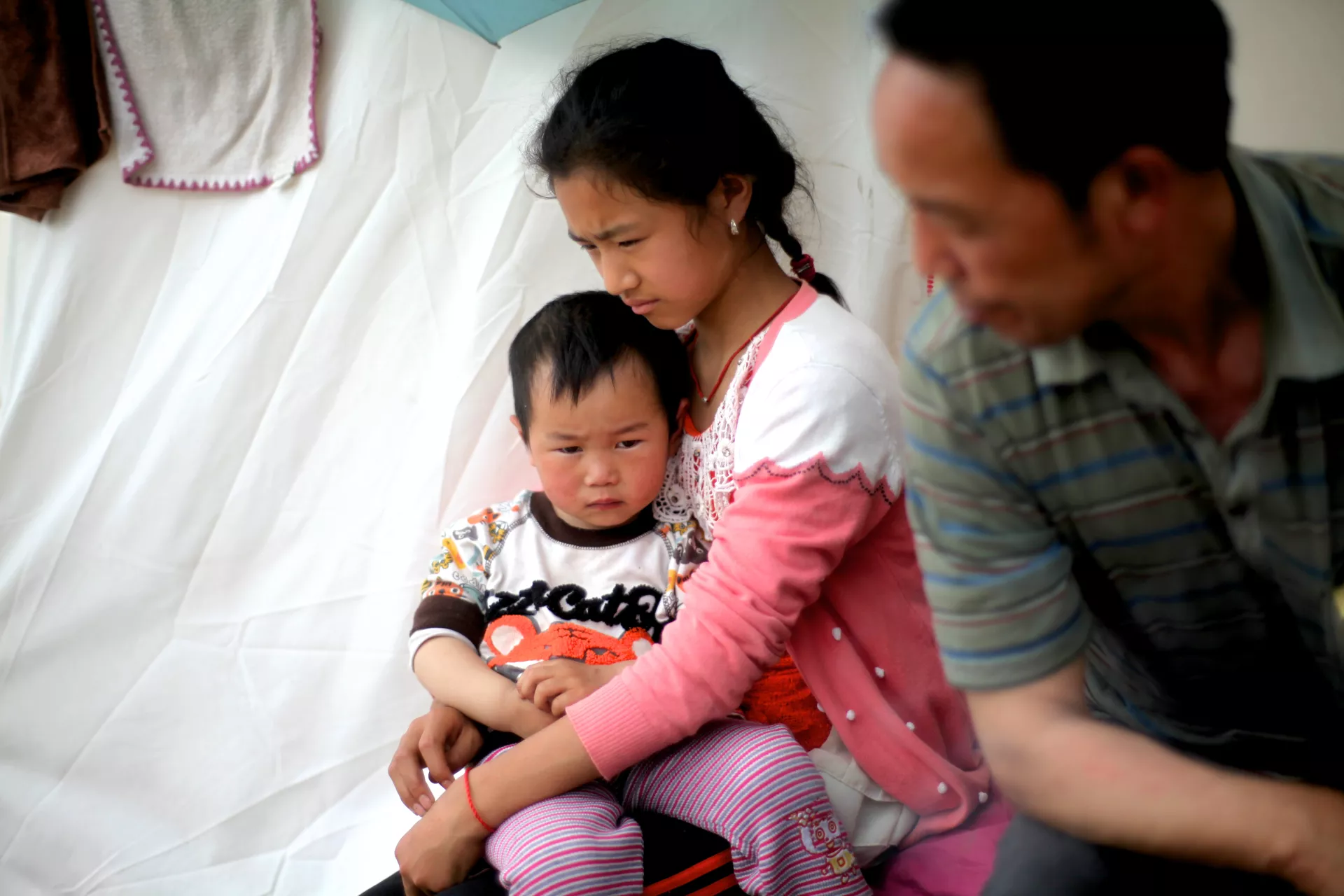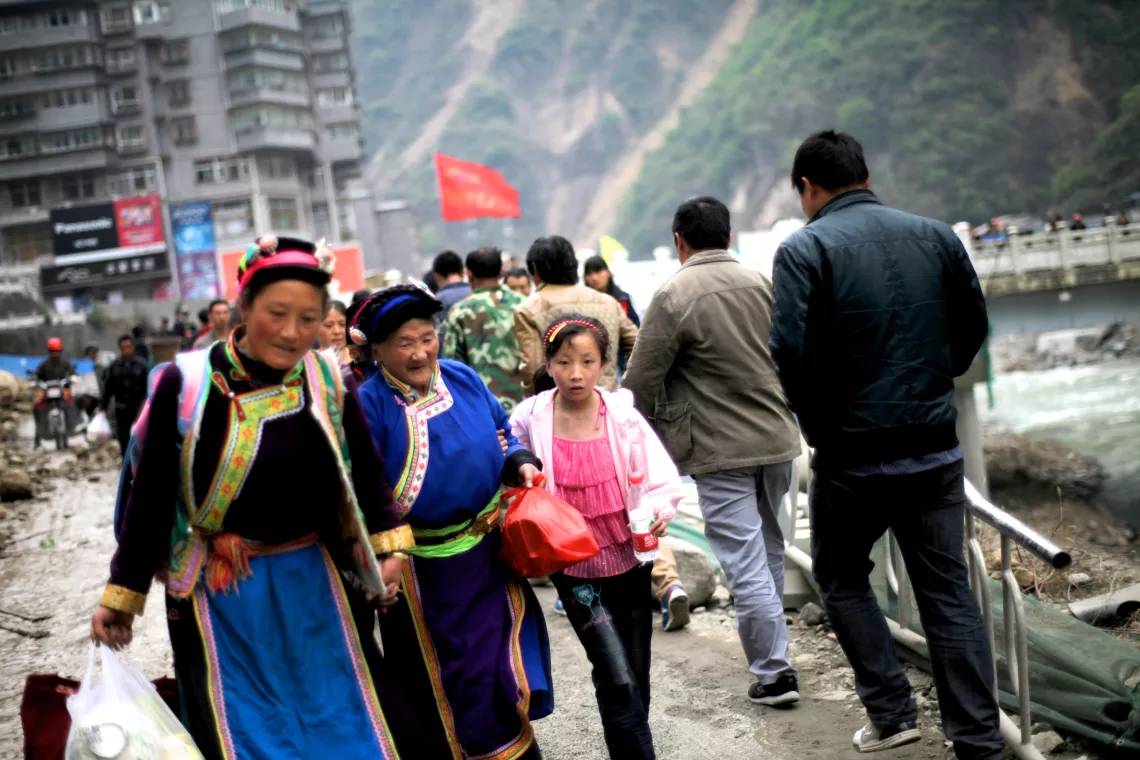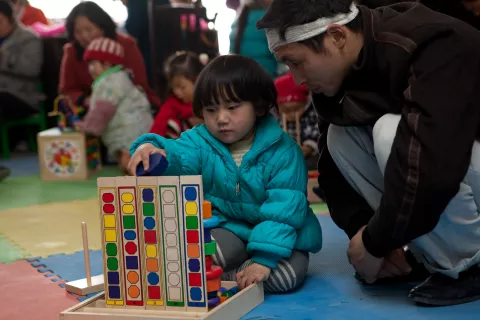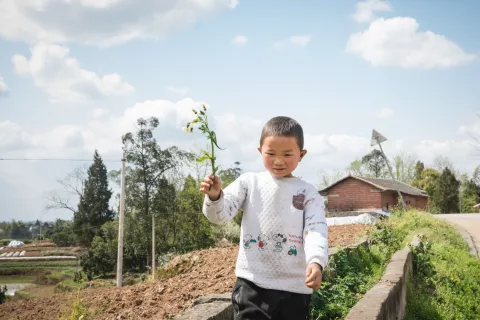Child Friendly Spaces to help children bounce back
Child Friendly Spaces to help children bounce back

- Available in:
- 中文
- English
UNICEF is now mobilizing to support government efforts to help children affected by the severe earthquake in Ya'an, Sichuan. Yang Haiyu, UNICEF Child Protection Specialist, has recently returned from Sichuan, and was interviewed about one of the key aspects of UNICEF's emergency support.
Q: What is UNICEF doing to help children affected by this earthquake?
A: As soon as the earthquake hit we began discussions with the National Working Committee on Children and Women (NWCCW) to understand the situation of children.
We decided to first strengthen the existing Child Friendly Spaces (CFS) around the epicentre of the earthquake to immediately help children in those communities receive community based child protection services. This is one of the most important needs of children now. Two CFS in Lushan and Tianquan county have started services through site visits, initial assessment, play and games with children in camps and open fields by the time of this interview.
After the quake, parents are usually busy saving people, setting up tents and solving the problems of food and basic needs. They are often unable to pay as much attention to children as they need to. Meanwhile, children's lives have been torn apart. They can't go to school or kindergarten, or the public place where they used to spent their spare time for a while, and everything they are familiar with has been changed. They urgently need psycho-social support that can be provided by their peers, parents, community volunteers and CFS community workers, which is culturally appropriate and locally available.
The Child Friendly Space (CFS) concept was designed with NWCCW to give children urgent and inclusive support to foster the native resiliency that will help most children bounce back from the trauma.
Q: How does the CFS work to help children in emergencies?
A: In the aftermath of the Wenchuan earthquake, UNICEF and the National Working Committee on Children and Women set up 40 community based Child Friendly Spaces in severely affected areas of Sichuan. Several of them are around the epicentre and two are in Lushan County.
CFS provides a safe space, play and recreation equipment, a positive environment for children to recuperate, to share experiences and to develop. Community workers in CFS are trained to help children recover from the intense mental stress. They organize group games for children to engage in normal children's activities so the impact of the disaster can be minimized. They also visit other camps or villages regularly, to help children in other areas affected by the earthquake, and especially those who cannot come to the CFS facility due to distance and concern of safety. In this emergency we are putting strong emphasis on mobile outreach to connect as many children as possible with the support.
This time, we will further improve the service package and innovate on mobile outreach to enhance the mobility of services for hard to reach, vulnerable children and communities.We are also strengthening the coordination and referral service function of CFS to link up with existing services in the communities affected by the earthquake.

Q: How will you advance the concept of CFS this time?
A: The CFS will be more "mobile" and enhance its multi-sectoral feature.
Firstly, mobile outreach teams will be sent in surrounding communities to help more children.
The existing CFS have been ruined by the quake and out of use. We are currently coordinating with provincial, prefecture, county level WCCW and township governments to coordinate identification of a space for a tent-based CFS, which will be equipped with key supplies including toy kits, sports kits, books, desks and chairs. In the meantime, local community workers in CFS are making use of spaces available in affected communities to carry out mobile services.
CFS community workers will visit different temporary settlement areas and villages with easy-to-carry toys and props to help children. They will bring games, organize group activities, provide basic knowledge on hygiene and sanitation, how to avoid injuries and to stay safe following the quake.
We might call them "ackpack community workers". In that way, they will be " mobile CFS that reaches out". Even after the tents are settled, the community workers will still travel frequently to help more children further away.
Q: We know there is an existing CFS near Lushan county seat. Are they OK?
A: Sure. I tried to get through soon after the earthquake but failed. When the communication recovered, I was moved by several calls from children in the CFS. They were eager to tell me that they had survived and were looking forward to be back in CFS.
Some children have already grown up and left the county, but one of them told me he would very much like to come back to help in CFS to pass on the love he got to others.
Local community workers at CFS also contacted me to report safety, and expressed their willingness to serve their communities once possible.
(In 2012 the children who frequented the CFS in Lushan County made this touching video about their hopes and dreams)





